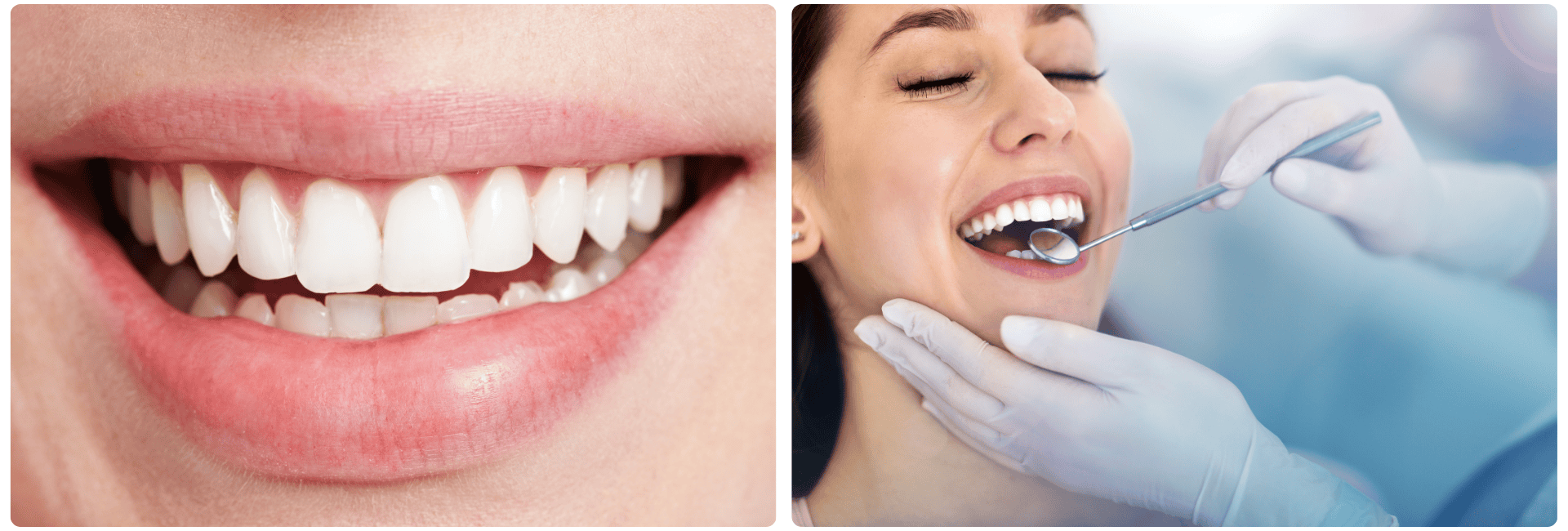
Everything you need to know about dental veneers
A captivating smile frequently serves as the initial focal point when encountering someone new. Given its impact on first impressions, it's no wonder that an ever-growing number of individuals are actively exploring ways to enhance and beautify their smiles. Among the popular methods gaining widespread attention is the use of dental veneers, also referred to as facings. In this blog, we embark on an informative journey to unravel everything you need to know about dental veneers.
What are dental veneers?
Dental veneers, or facings, are thin, custom-made shells placed over the front surface of your teeth. They are frequently used to conceal aesthetic imperfections and enhance the overall appearance of your smile. Veneers are crafted from durable materials such as porcelain or composite.
Why do people choose dental veneers?
1. Aesthetic improvement
Dental veneers are often chosen to correct discolored, stained, or uneven teeth. They provide a quick and effective way to transform your smile and boost self-confidence.
2. Restoration of damaged teeth
Teeth damaged due to decay, wear, or accidents can be restored with dental veneers. They not only cover the imperfections but also strengthen the teeth.
3. Alignment improvement
If you have mild misalignment of your teeth, veneers can be an alternative to orthodontic treatments. They can create the illusion of straight teeth without the need for lengthy orthodontic procedures.
Types of dental veneers
1. Porcelain veneers
Porcelain veneers are renowned for their durability and natural appearance. They reflect light in a similar manner to natural teeth and are resistant to stains.
2. Composite veneers
Composite veneers are applied directly and are generally less expensive than porcelain veneers. However, they may have a shorter lifespan and are more prone to discoloration.
Maintaining dental veneers
Veneers do not require special maintenance, but maintaining good oral hygiene is crucial. Regular dental visits and avoiding excessive consumption of foods and beverages that cause stains contribute to the longevity of veneers.
Dental veneers offer a versatile solution for those looking to enhance their smiles. Whether you have discolored teeth, want to correct minor misalignments, or need to repair damage, veneers can provide a quick and effective option. Always consult with a dentist for a thorough evaluation and to determine the best treatment options for your specific situation. A radiant smile awaits you!
Dental implant costs around the world
Dental implant costs can vary significantly depending on the country and region where the procedure is performed. Below is a comparison of prices in 20 different countries, converted into US dollars (USD) for clarity:
United States: $1,500 - $6,000 USD per implant
United Kingdom: £2,000 - £4,000 GBP per implant (approx. $2,600 - $5,300 USD)
Canada: $1,500 - $6,000 CAD per implant (approx. $1,200 - $4,700 USD)
Australia: $2,500 - $5,000 AUD per implant (approx. $1,800 - $3,700 USD)
Germany: €1,500 - €4,000 EUR per implant (approx. $1,700 - $4,500 USD)
France: €1,000 - €3,000 EUR per implant (approx. $1,100 - $3,400 USD)
Brazil: R$4,000 - R$10,000 BRL per implant (approx. $750 - $1,900 USD)
Mexico: $10,000 - $25,000 MXN per implant (approx. $500 - $1,300 USD)
Japan: ¥300,000 - ¥600,000 JPY per implant (approx. $2,700 - $5,500 USD)
South Korea: ₩1,500,000 - ₩4,000,000 KRW per implant (approx. $1,300 - $3,400 USD)
India: ₹20,000 - ₹50,000 INR per implant (approx. $270 - $670 USD)
South Africa: R20,000 - R40,000 ZAR per implant (approx. $1,300 - $2,600 USD)
UAE (Dubai): 7,000 - 15,000 AED per implant (approx. $1,900 - $4,100 USD)
Saudi Arabia: 7,000 - 15,000 SAR per implant (approx. $1,900 - $4,000 USD)
Russia: 40,000 - 100,000 RUB per implant (approx. $550 - $1,400 USD)
China: ¥8,000 - ¥20,000 CNY per implant (approx. $1,200 - $3,100 USD)
Spain: €1,000 - €2,500 EUR per implant (approx. $1,100 - $2,800 USD)
Italy: €1,000 - €2,500 EUR per implant (approx. $1,100 - $2,800 USD)
Netherlands: €1,000 - €2,500 EUR per implant (approx. $1,100 - $2,800 USD)
Switzerland: CHF 4,000 - CHF 7,000 per implant (approx. $4,400 - $7,700 USD)
These prices are approximate and can vary based on factors such as the type of implant, the surgeon's experience, and the clinic's location within each country. It's important to consult with qualified professionals and thoroughly research before undergoing a dental implant procedure.

Questions patients can ask when considering dental implants
Dental implants are a popular and effective solution for replacing missing teeth, providing a permanent and natural-looking option. For those considering this procedure, it's important to ask the following questions during the consultation:
- What types of dental implants do you offer?
What types of dental implants do you offer, and what are the differences between them? Which type would be most suitable for my dental condition? - What are the risks associated with the procedure?
What are the potential risks and complications during and after the dental implant procedure? How are these risks managed? - What results can I expect after the procedure?
What should I expect in terms of results after getting dental implants? How long does the healing process take, and when will I be able to see the final results? - Can I see examples of results in other patients?
Can you show me before and after photos of other patients who have received dental implants? This will help me have realistic expectations about the outcome. - What is the total cost of the procedure and what does it include?
What is the estimated cost of getting dental implants, and what services are included in that cost? Are there any additional costs I should be aware of? - What is your experience and training with dental implants?
How many dental implant procedures have you performed? Are you certified and experienced in this type of dental work?
Asking these questions during the consultation will provide detailed information about the dental implant procedure and help make an informed decision about whether this option is suitable and safe for you. Each patient is unique, so it’s important to discuss your individual needs and expectations with a qualified dental professional.
